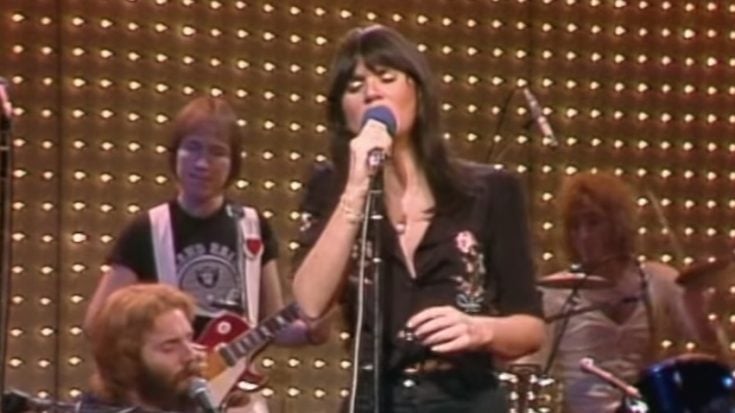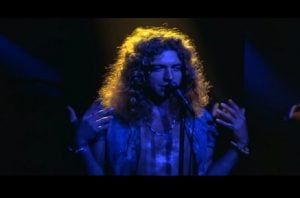4 Timeless Linda Ronstadt Songs Every Fan Should Hear at Least Once

Linda Ronstadt live in 1975 - gemini24 productions / YouTube
There’s something unmistakable about the way Linda Ronstadt sings—a mix of effortless power and raw emotion that never tries too hard, yet always hits its mark. Whether she was taking on rock anthems, tender ballads, or reinventing country standards, Ronstadt brought a clarity and warmth to her music that still holds up decades later. Her voice didn’t just carry tunes—it carried stories, heartbreaks, and whole eras of sound.
Over the course of her career, she crossed genres without hesitation, working with everyone from the Eagles to Dolly Parton, while making each song distinctly her own. She wasn’t just chasing trends—she was helping shape them. And even as musical styles came and went, Ronstadt’s recordings remained anchored by her incredible vocal presence and her sharp instinct for what makes a song resonate.
For listeners just getting acquainted with her discography, the depth and variety might seem overwhelming at first. But there are certain songs that serve as perfect entry points—tracks that highlight her range, her emotional honesty, and her lasting impact. Here are four timeless Linda Ronstadt songs that belong on every fan’s playlist.
View this post on Instagram
“When Will I Be Loved”, Heart Like a Wheel (1974)
Originally recorded by The Everly Brothers in 1960, “When Will I Be Loved” was already a well-loved track before Linda Ronstadt gave it her spin. But her 1974 version, featured on the Heart Like a Wheel album, transformed the song into something entirely new. Her arrangement brought a stronger country-rock presence to the track, and her vocal delivery made the heartbreak at its core hit a little harder.
With the help of collaborators Andrew Gold and Kenny Edwards, Ronstadt sharpened the song’s emotional edge without losing its roots. There’s a breezy tightness in the instrumentation that matches her vocal clarity, making every line feel simultaneously effortless and deliberate. It’s the kind of cover that doesn’t just pay tribute—it reinvents.
The public clearly responded to that reinvention. The track soared to No. 2 on the Billboard Hot 100, further cementing Ronstadt’s role as one of the most powerful voices of her time. It’s a perfect blend of rock confidence and country vulnerability, and a shining example of how she could take a classic and make it sound like it had been hers all along.
“Different Drum”, Evergreen, Volume 2 (1967)
Before she became a solo superstar, Linda Ronstadt first caught national attention with The Stone Poneys. Their early folk-rock leanings didn’t set the charts ablaze at first, but that all changed when they released “Different Drum” in 1967. Written by Michael Nesmith of The Monkees, the song gave Ronstadt a platform to show just how captivating her voice could be.
Even back then, there was something refreshingly direct in the way she delivered lines about independence and emotional autonomy. Her vocals carry both sweetness and steel, a combination that would become a signature of her sound. It wasn’t just a love song—it was a statement of self-worth, and Ronstadt made every word count.
“Different Drum” didn’t just put The Stone Poneys on the map—it also set Ronstadt on her path toward a solo career. The success of the single gave her the confidence and momentum she needed to step out on her own. For many fans, this track remains the earliest glimpse of the powerhouse she would soon become.
“Tumbling Dice”, Simple Dreams (1977)
Covering a Rolling Stones song isn’t for the faint of heart, but Linda Ronstadt wasn’t one to back down from a challenge. Her rendition of “Tumbling Dice,” released on the Simple Dreams album in 1977, showed that she could dive headfirst into gritty rock and hold her own. The original track, known for its bluesy swagger and loose rhythm, got a sleeker, more polished edge in her hands.
What’s remarkable is how she manages to stay true to the essence of the Stones while still making the track feel unmistakably hers. There’s a confident rasp in her delivery, a kind of vocal smirk that mirrors the song’s playful cynicism. She doesn’t mimic Mick Jagger—she counters him, adding a kind of fierce charm that flips the song’s perspective without dulling its bite.
For listeners who grew up on her softer country ballads, “Tumbling Dice” might seem like a curveball—but it’s a glorious one. The song feels natural in her catalog, and it’s one of those rare covers that can make you forget about the original for a moment. That’s the Ronstadt effect: she doesn’t just cover songs—she claims them.
“You’re No Good”, Heart Like a Wheel (1974)
“You’re No Good” might not be Linda Ronstadt’s most obscure track, but it remains one of her most essential. Originally recorded by Dee Dee Warwick in the early ’60s, the song passed through several hands before Ronstadt made it a massive hit in 1974. With its slinky rhythm and sharp production, her version gave the tune a bold new life—and a whole lot of attitude.
The track opens with a distinctive riff and builds into a simmering groove, but it’s Ronstadt’s voice that elevates it from solid to unforgettable. She moves from softness to force with ease, balancing heartbreak with anger in a way that feels utterly cathartic. The track’s arrangement gives her room to play with tension and release, which she does masterfully.
It eventually became her first No. 1 hit on the Billboard Hot 100, and for good reason. “You’re No Good” captures everything that made Ronstadt great: her ear for strong material, her vocal dynamism, and her ability to reinvent without losing authenticity. It’s the kind of song that lingers long after it ends, much like her voice itself.















